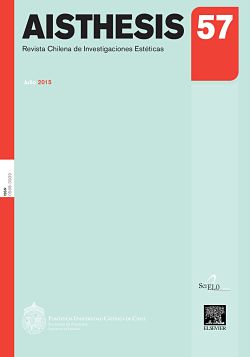Walter Benjamin and Dziga Vertov: From the Crisis of Aura to the Liberation of the Cinematographic Apparatus
Main Article Content
Abstract
During most of the twentieth century cinema became an apparatus that configured modes of perceiving and relating. This paper takes as a point of departure Walter Benjamin reflections on how the cinematographic apparatus intensified the crisis of aura by making reproducibility the privileged form of existence of the “new arts” and a more important modality of reception for traditional arts. This opens up the possibility of dissolving bourgeois forms and reuse their ruins, which implies the adaptation of cinematographic production media to revolutionary ends. It is Dziga Vertov who, through his manifestos, essays and movies, accomplishes this task by trying to free cinema from capital, art and human space and time, in search of a deciphering of the sensitive word that allows for collective awakening.
Downloads
Article Details

This work is licensed under a Creative Commons Attribution-NonCommercial-ShareAlike 4.0 International License.
All contents of this electronic edition are distributed under the Creative Commons license of "Attribución-shareAlike 4.0 Internacional" (CC-BY-SA). Any total or partial reproduction of the material must mention its origin.
The rights of academic works published in this publication belong to their authors., who grant to AISTHESIS: Revista Chilena de Investigaciones Estéticas the license for its use. The management of the permits and the authorization of the publication of the images (or of any material) that contains copyright and its consequent rights of reproduction in this publication is the sole responsibility of the authors of the articles
